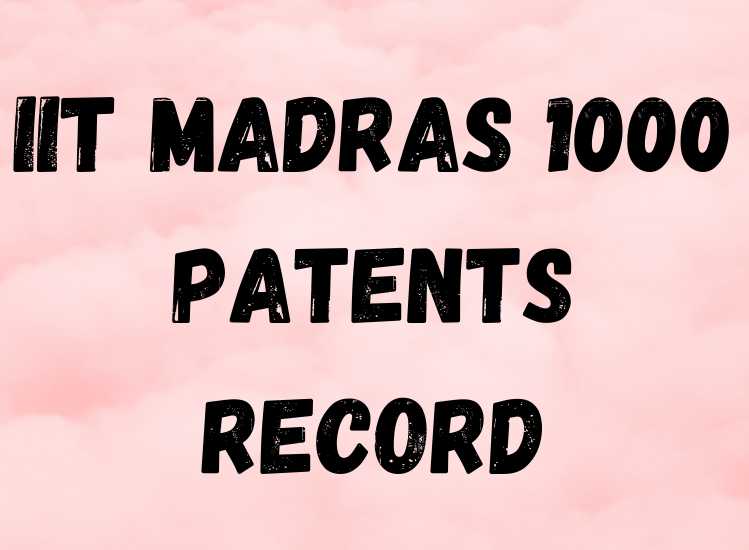Researchers at IIT Madras have filed over 1,000 patents in India and internationally, with the United States having the most patents filed outside.
NEW DELHI: Officials at the Indian Institute of Technology Madras announced that the number of patents it has generated in India and overseas has surpassed 1,000. In the previous five years, the number of patents filed by the institute has increased, with the United States accounting for the majority of patents submitted outside India. The overall number of patents filed in India was 1,204 as of March 31, and the total number of worldwide patents submitted was 529. In the United States, 155 patent applications were filed.
The IIT-Madras covers 70% of the costs of submitting foreign patents, with the inventor covering the remaining costs. “The enormous number of international patents (218) submitted under the Patent Cooperation Treaty was another key element (PCT). The PCT supports applicants in obtaining international patent protection for their ideas. Applicants can seek protection for an invention in all of the countries that are party to the PCT (153 countries as of today) by filing a single international patent application under the PCT “Ravindra Gettu, Dean of the Centre for ICSR, stated.
Gettu stated that the Centre has taken a number of steps in recent years to encourage the filing of more patents in India and abroad. “The International Centre for the Study of Radicalisation (ICSR) has developed a dedicated IP Cell that conducts regular intellectual property (IP) awareness programmes to sensitise students or faculty on the necessity of IP protection and monetisation,” he stated.
According to Gettu, the institute has enabled patent filing through faculty and student awareness efforts. “The processes have also been made simpler and faster, without interfering with our scholars’ primary goals of publishing and completing their theses. IP monetization has also become a current priority area in order to encourage patenting and support future advances “he stated

